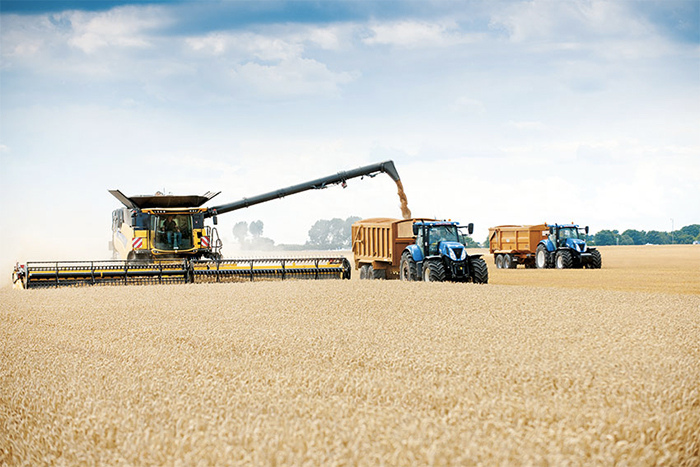
Agriculture has remained one of the industries in which workers are most likely to be injured, according to new figures released today.
Injury and ill-health statistics released by the Health and Safety Executive (HSE) show that an estimated 28.2 million working days were lost due to work related ill health or injury in 2013/14.
As a result, the cost to society from such injuries and new cases of ill health due to current working conditions is an estimated £14.2 billion (2012/13 figures based on 2012 prices), according to the latest annual statistics published by HSE today.
For injuries, agriculture, forestry and fishing, construction, accommodation and food service activities, transport and storage, and manufacturing had statistically significantly higher rates than for all industries. Agriculture totalled 292 major/specified injuries.
Over the past decade almost 80 men, women and children have died on Scottish farms alone and significantly more have been badly injured as a result of farming activities. That brings a catalogue of heartbreak and misery to numerous families and rural communities each year.
Judith Hackitt said: “These latest figures remind us what health and safety is really about. We should remind ourselves what these numbers actually mean – the number of times in the last year someone went out to work and either did not return home to their loved ones or came home with life changing injuries.
“The health numbers also demonstrate the scale of harm being done to people’s health while at work, too often leading to premature death.
“Jobsworths using ‘elf n safety as a convenient excuse for all manner of things, and those claiming health and safety is a burden, need to reflect on this. Britain has one of the best health and safety systems in the world, but that is cold comfort to those who have suffered loss or suffering that is so easily avoided with sensible and proportionate risk management.
“We all need to commit to focussing on what really matters – ensuring more people return home from work every day and enjoy long and healthy working lives.”
The industries in which workers are most likely to be injured by their jobs have not changed significantly – with construction (1900 major/specified injuries), agriculture (292 major/specified injuries), manufacturing (3159 major/specified injuries) and waste and recycling (486 major/specified injuries) among the higher risk sectors.
NFU Scotland Vice President Allan Bowie said: “Tragic incidents in the past few days across the UK and Ireland remind everyone that farms can be dangerous places so it is important that everyone on a farm takes the necessary steps so that they can stay safe while farming. The Farm Safety Partnership intends to change behaviours and attitudes by promoting the steps that can be done to reduce the risks of common farm jobs. Most people will be able to recall a close call situation that could so easily have resulted in serious injury or even fatality. By adopting some simple steps as part of everyday working practices we can reduce the number of accidents and deaths on the UK's farms.”
Martin Malone from NFU Mutual added: “As the insurer of the majority of Scottish farms, we are all too aware of the dreadful impact that deaths and serious injuries have on farming families and are determined to do everything we can to help prevent accidents in the future. The establishment of the Scotland Farm Safety Partnership provides a focus for organisations involved in agriculture to work together and use their combined skills and experience to produce a less dangerous working environment. Whilst other industries – including construction – have seen accidents fall sharply in recent years, the number of people killed and injured on our farms has remained high and farming is now the most dangerous occupation in GB.
Rick Brunt, Head of Agriculture, Health and Safety Executive said: “The high rate of deaths in the farming sector underlines the industry’s poor record of managing risks. Every year too many people are needlessly killed and injured on farms in the UK.”
